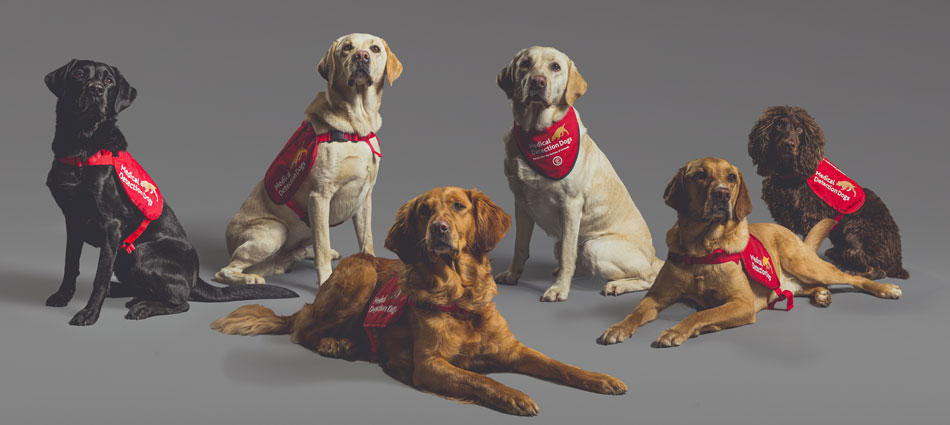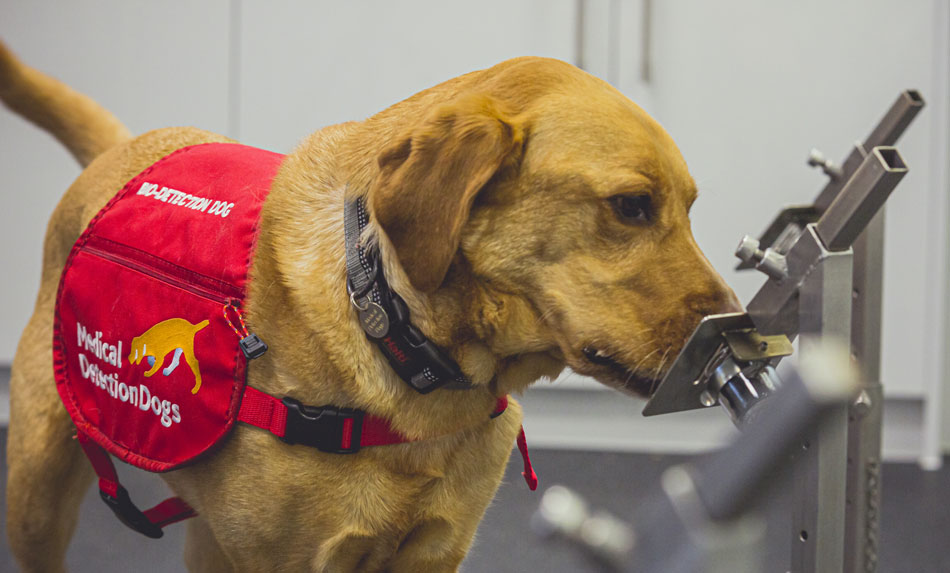COVID-19 Detection Dogs
COVID-19 – the nose knows
Six of our elite team of trained Bio Detection Dogs were taken through to double-blind testing, with the best performing giving a sensitivity of up to 94.3% and specificity of up to 92%, meaning they can reliably identify when people do and don’t have the disease.

Over 3,750 people across the UK, including NHS staff, donated odour samples for this study, by wearing socks, face masks and shirts which were processed by the research team and used for training and testing the dogs. The sample size and modelling make this the most robust and in-depth trial of its kind around the world.
MDD Chief Scientific Officer and the Principal Investigator on the trial, Claire Guest, says: “ We are so proud of our dogs for so accurately detecting the odour of COVID19 from a small piece of sock worn by an individual several weeks ago. The dogs indicated that COVID-19 does indeed have a detectable odour that dogs could be trained to reliably detect.
“To correctly identify the odour over 94% of the time and know when there was no disease present in over 90% of cases is remarkable.
“It proves the positive impact dogs, with their rapid turn-around time, could have for mass screening alongside a confirmatory PCR test as we continue to battle the pandemic. We believe that their noses could provide a strong line of defence against future pandemics.”
These exciting results mean we have now moved to the next phase of the trial, which will see dogs trained to work in public settings.
Our results indicate that dogs perform better than the Lateral Flow Test which has a sensitivity of between 58-77%. Using dogs will also be considerably faster than existing testing methods since one dog can screen up to 250 people in 1 hour.

We are now certain that dogs would be best used as a first, rapid screening tool, followed by a confirmatory PCR test for only those individuals indicated as positive by the dog.
Crucially, they will be able to identify individuals who are carrying the virus but are asymptomatic. With many COVID-19 patients having no obvious symptoms, these individuals may not adhere to isolation guidelines, and the deployment of detection dogs could prevent up to 30% more onward transmission than no screening.
Claire Guest says: “Knowing that we can harness the amazing power of a dog’s nose to detect COVID-19 quickly and non-invasively gives us hope for a return to a more normal way of life through safer travel and access to public places, so that we can again socialise with family and friends.”
The study, which is still to be peer-reviewed, was carried out in collaboration with The London School of Hygiene & Tropical Medicine and Durham University and was part-funded by the UK’s Department of Health & Social Care.
